
Conversion optimization for a B2C SaaS
An onboarding redesign focused on conversion & activation optimization
SaaS
Activation
Onboarding
Product-Led Growth

Pleexy transforms scattered tasks into organized action by connecting your task manager with tools like Notion, OneNote, Trello, etc.
The project focused on improving first-session activation with a value-first, low-friction onboarding while maintaining its configuration flexibility.
Problem
A broken onboarding flow
The original onboarding asked users to make too many decisions up‑front, hid the value behind configuration, and broke on smaller screens. As a result, most sessions ended before users connected a single provider.
The data showed a significant drop-off during onboarding: out of every 100 users who signed up for Pleexy, only 17 would set up an integration - meaning most never reach the point of experiencing its core value.
Research goal
Why didn’t users set up an integration?
Hypothesis
Fixing the onboarding flow will increase conversion
After identifying the onboarding as a key bottleneck in Pleexy’s user funnel, I focused on resolving it first, as this would not only enable more users to experience Pleexy’s value but also improve satisfaction among those who completed the process.
Experience the value
Getting users to experience Pleexy’s value was the top priority, since they were already creating accounts—showing clear interest in the product.
Increase satisfaction
A smooth onboarding experience would increase customer satisfaction, ultimately leading more users to convert.
Research
Combining data and user feedback
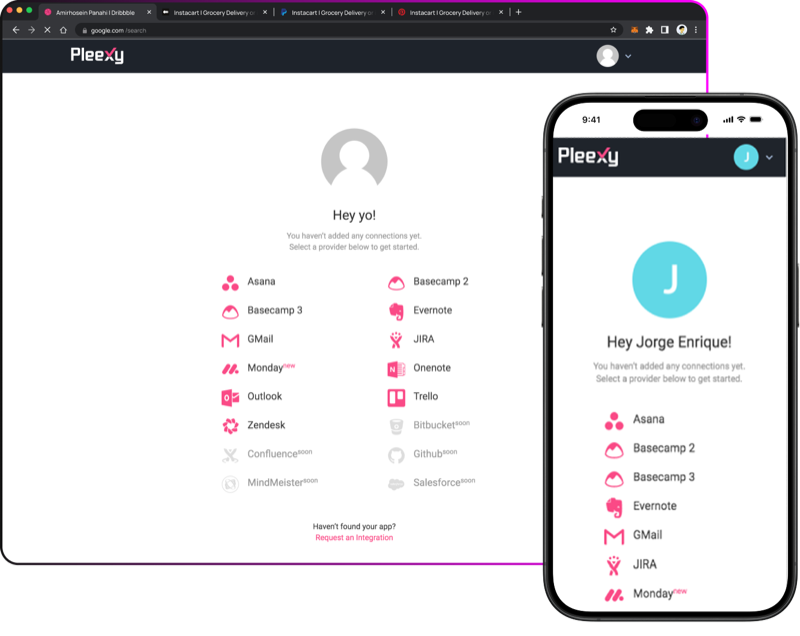
The first step was to explore the factors behind the high drop-off rate. We took several approaches: reviewing data from Google Analytics, conducting design heuristics analysis, and interviewing users.
Heuristic review
Audited the onboarding flow across desktop and mobile to identify friction: unclear hierarchy, competing CTAs, and configuration-first patterns.
Product analytics
Tracked funnel from signup → integration setup → conversion. Biggest drop occurred before the integration setup, indicating unclear value and missing user guidance.
User interviews
Observed first‑time users. Many weren’t sure what would happen after creating an account.
Support audit
Categorized tickets. A large portion related to setup confusion, system failures, and ambiguous terminology.
Validation
Iterating with a Figma prototype
To maximize team efficiency, I prioritized browser compatibility fixes for the development team - work they could tackle independently - while I focused on designing a new onboarding flow prototype in Figma. This allowed parallel progress: the devs remained unblocked, and I advanced the onboarding project without delay.
Once the prototype was ready, I ran one-on-one interviews with 3 different user profiles (3 from each - 9 in total):
- Current customers
- Users who dropped off during onboarding
- Task manager users unfamiliar with Pleexy
Their feedback shaped multiple design iterations, leading to a significantly improved onboarding experience.
By running an iterative process with current and potential users, we were able to launch a solution that directly addressed user needs and delivered real value in production.
Improvements
Changes introduced to improve conversion
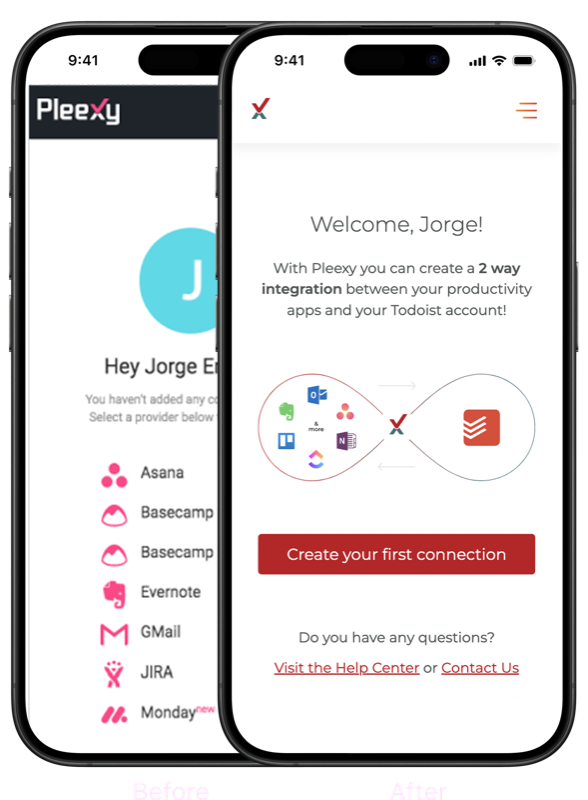
Revamped onboarding
To make things clear and easy, we broke down the creation process into several steps. This give users control and clarity on what’s happening at each stage.
Mobile first approach
We noticed that most first-time users were accessing Pleexy on their mobile devices, so we optimised the screens to make sure everything looked and worked great on mobile.
Connections
We renamed integrations to “connections”, as it sounds more human. Users liked this change during interviews.
Main CTA
We added a main button with a clear instruction: “Create your first connection.” This made it easy for users to know exactly what to do.
Outcome
A smooth onboarding that met the goals
Following the experimentation phase, we implemented the validated improvements and established a 3-month monitoring period to evaluate their business impact.
- Conversion improved 2.3x
- Onboarding completion improved 4.6x
- Support tickets were down 47%
Testimonials
What users say about Pleexy's UX
Setup in seconds. No credit card for the free trial. Worked first time. This is exactly how integrations should work. I've always held back from integrations as I've tried before with other systems and they we complicated. Not so with this Pleexy... Brilliant - thanks!
My team uses Asana but I manage my day with Todoist. I have tried other solutions like Make (formerly Integromat) and Zapier but the price and ease of use for Pleexy make it the clear winner.
Yes please, I would prefer to use something like Pleexy as it’s very straightforward in contrast to something like Zapier which I simply found too complicated.
Support - Customer conversation
Screens
Wizard views
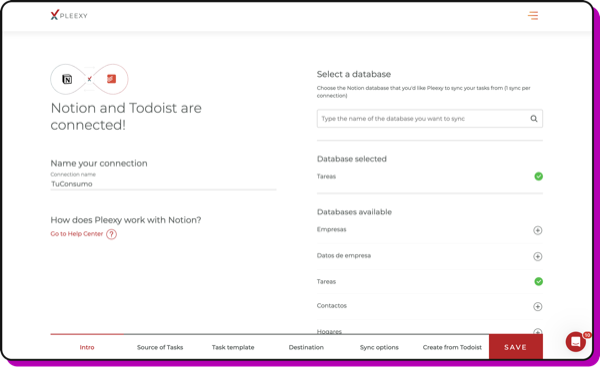

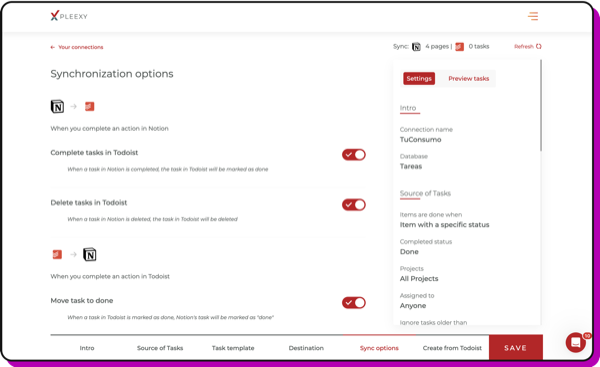
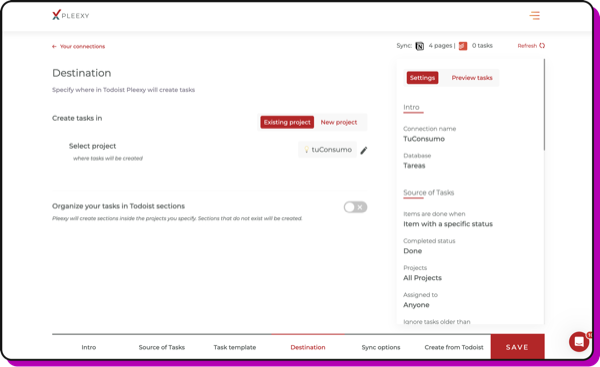
What I learned
Key takeaways
Small friction points, like unclear CTAs or bad mobile compatibility, can destroy activation.
By listening to users, leveraging analytics, and iterating quickly, the onboarding became a growth lever instead of a bottleneck.
Live demo
Try it out for yourself
You can visit pleexy.com to try it out yourself, you have a 14-day free trial.

